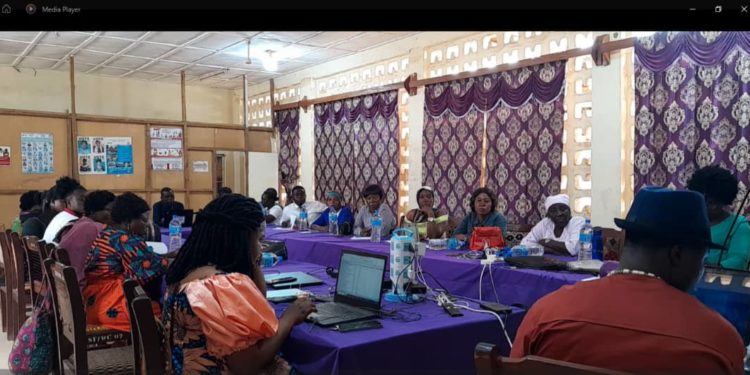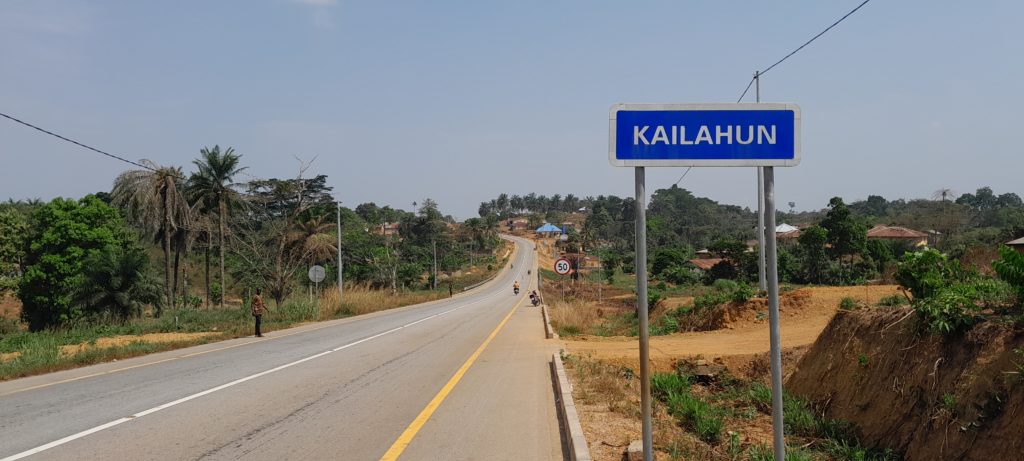
In the Eastern Province of Sierra Leone, close to the borders with both Guinea and Liberia, is the town of Kailahun. Here, in a small conference hall, a female facilitator is giving a talk on Sierra Leone’s Gender Laws.
The audience is made up of about 20 people, mostly women, drawn from various civil society organizations in the district. Among them is Fatmata Baby Koker, representing the Kailahun Women in Governance Network (KWGN), which has been at the forefront of a silent revolution, aimed at giving women their rightful position in decision-making.
KWGN was conceived in 2010, in reaction to what the founders felt was a deep-rooted culture of suppression of women.
“We were in total darkness about what’s going on around us. We couldn’t attend meetings. We couldn’t speak in public. Men would not allow us,” recalled Koker, who is Public Relations Officer for the organization.
Ten years later, and Kailahun is now leading in the national effort for women to attain a minimum of 30 percent of decision-making positions – in line with the country’s recently enacted Gender and Women’s Empowerment (GEWE) law, a piece of legislation that seeks to promote gender equality.
By Koker’s estimation, her district is closer to the 40 percent mark.
According to the 2022 Midterm Population and Housing Census, women constitute a majority of the population in Sierra Leone. Yet, women are often seen as second class citizens. In 2020, the United Nations Development Programme’s Gender Inequality Index ranked Sierra Leone 181 out of 191 countries – indicating a severe inequality between women and men in the country, especially in terms of reproductive health, empowerment, and labor market opportunities. This is thanks largely to harmful cultural and traditional practices, which include various forms of violence and oppression against women and girls – such as child marriage, domestic and sexual violence, and female genital mutilation (FGM), each of which are still recorded at high rates across the country.
Kailahun is considered one of the poorest districts in Sierra Leone, and it was also one of the hardest hit by the 1991-2002 civil war, which left much of its infrastructure in ruins. Yet, when it comes to women’s equality and empowerment, the district is starting to make some serious progress. And Koker is one of the women who has helped lead the way forward.
Today, as the spokesperson for the KWGN, Koker holds the honour of being a member of an all-important committee that elects traditional leaders like Paramount Chiefs – a formerly exclusively male club. Now, she said, many women have been elected to chieftaincy positions.
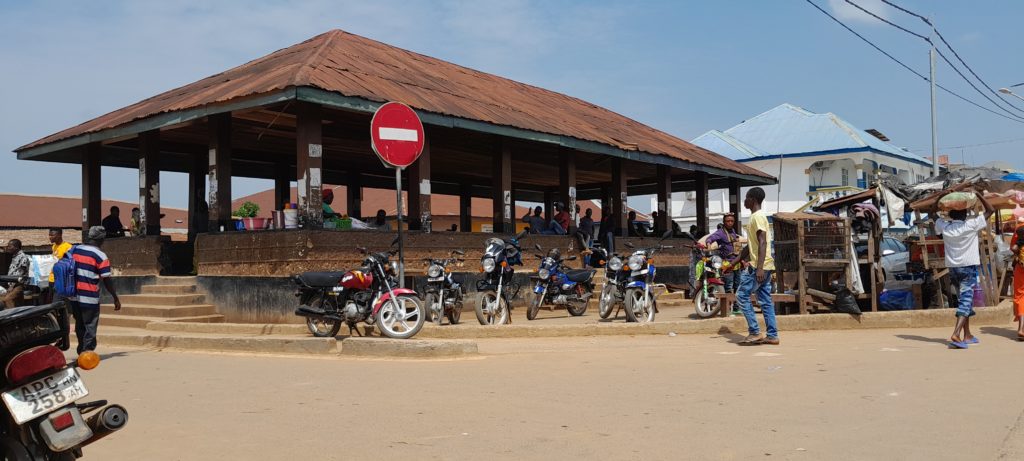
Women councilors
Before the establishment of KWGN, there was not a single woman councilor in Kailahun, according to Koker – who notes that today, the district boasts six female councilors, out of 33 seats. The Chief Administrator is also a female.
At the national level, out of the 19 female lawmakers in Sierra Leone’s Parliament, four are from Kailahun, which has the largest number of female representatives from any district. And in fact, it stands out as a shining example for the entire east and southeast region – which, according to government data, has made more progress in terms of female participation in politics, than the rest of the country in recent years.
In parliament, for instance, there are 12 female lawmakers hailing from the southeast (constituting 63 percent of all female lawmakers), while the north and west only have four female MPs each.
Creating equal opportunity for men and women has been the subject of repeated promises by successive governments, since the end of the war. However, women’s rights groups say that not only are traditional and cultural norms continuing to limit women, but women seeking public positions also frequently have to deal with threats of emotional and physical violence.
A study looking at threats of violence against public facing women, conducted in 2022 by the Sierra Leone Association of Women in Journalism (SLAWIJ), paints a clear picture of this situation.
For the past year, SLAWIJ has been studying the occurrence of threats targeted against women journalists, women politicians, and women human rights defenders in Sierra Leone – including First Lady Fatima Bio, Sylvia Olayinka Blyden, and Freetown Mayor Yvonne Aki-Sawyerr, among others. SLAWIJ has followed these women across social media platforms like Facebook, WhatsApp, Twitter and Instagram, capturing screenshots of harassing comments left under their social media posts, as well as threatening or demeaning posts left elsewhere on social media.
The findings reveal a disturbing reality of what women go through, while trying to exercise their fundamental human rights of expression and association. They capture verbal and written abuse, including invectives directed at their families.
The study was conducted with funding and technical support from Internews, as part of a project called WIRED. Through the project, SLAWIJ is engaged as part of a consortium of media and civil society organizations, focusing on advancing the public participation and protection of women activists, human rights defenders, and journalists.
Millicent Kargbo, Executive President of SLAWIJ, said the online violence sometimes translates to physical violence, leaving the women constrained.
“They can’t go out late at night. They can’t socialize as they should normally do, because they are afraid. They don’t know what would happen to them,” she told ManoReporters.
The women are called all sorts of names. Mayor Aki-Sawyerr is often referred to as the ‘Lipstick Mayor’. Other women get called out for their supposed old age. Even their physical appearances become the subject of ridicule. And the attacks come from both men and women alike.
“The intent of those who attack these women is to silence them, to shut them up,” said Kargbo, adding that with upcoming elections, they are concerned that the attacks may continue to escalate.
The SLAWIJ project focuses on two key areas – raising awareness and engaging key institutions on issues affecting women.
Kargbo stressed that continued public awareness and providing a platform for women to speak about their experience would help others overcome the challenges.
And in this vein, SLAWIJ is engaging public facing women regularly online – including through Live video interviews, hosted on its Facebook page. One of its first guests was Femi Claudius-Cole, who was a presidential candidate in the 2018 elections, under the ticket of the Unity Party, which she founded.
Claudius-Cole is one of the most active Sierra Leoneans on Twitter – a social media platform on which she is frequently attacked. And she is one person who doesn’t let any attack on her pass without challenging it.
“I don’t like to block people because I believe that democracy is about speaking your views and letting others do same. But some of the people come out with nasty stuff which is painful,” she explained during her Facebook Live interview with SLAWIJ.
She recounts receiving all kinds of insults on social media, where people have told her she is too old and should be taking care of her grandchildren. They have even called her a prostitute.
Claudius-Cole said sometimes she tweets her response immediately. But in most cases, she takes a break and comes back later to respond, after getting over “the disappointment, sadness and the anger” the attacks provoke in her.
“When you are angry, nothing really good comes out of you,” she said.
She also pointed out that sometimes, these online attacks can translate into physical threats – similar to what happened when she had her own house surrounded by unknown people, after she made a controversial comment on the radio.
Koinadugu
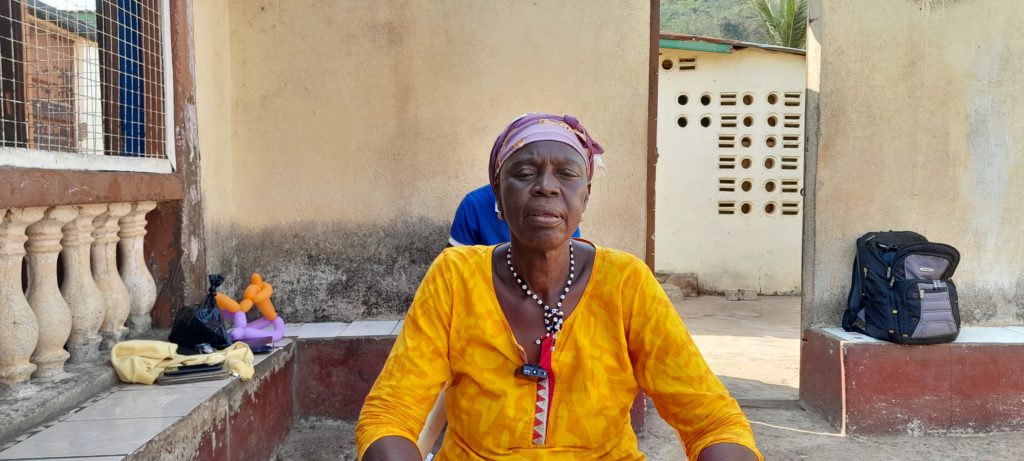
Meanwhile, in Koinadugu District, women’s rights workers cite similar challenges, when it comes to women’s participation in decision-making processes.
According to Haja Bintu Mansaray, the situation for women is at its worst in this part of the country.
“Here, up to now, they have not yet accepted women. I always say we are still tied by our traditions,” she said.
Mrs. Mansaray was one of the first women to vie for political position in Koinadugu, when local councils were re-introduced in 2004. She served for two consecutive terms, from 2008 to 2018.
The now elderly woman represented a Ward in Wara Wara Yagalya Chiefdom, in Central Kabala, the district capital. She recalled that her first attempt was very difficult, as she was met with stiff resistance from people who felt that the place of women was in the traditional role of the kitchen and taking care of the family.
Through support of advocacy organizations involved in empowering women, Mansaray eventually succeeded. She has since paved the way for many other women who are holding key decision-making positions, from Council to political party positions. But she is under no illusion about the prevailing obstacles.
After serving two terms in the Council, Mansaray decided to run for the chairmanship – but lost out to male contenders, in two separate elections. According to her, such setbacks have a lot to do with her gender, rather than her qualifications for the position.
“It is worse in the North, especially this part – northeast. Although in some areas, like Bombali and Tonkolili, they have [female] Mayors and members of Parliament. For us here in Koinadugu and [neighbouring] Falaba, it is very, very difficult. We have tried a lot. Whenever you stand as a woman for a position, it is very, very difficult, the men would say no. We don’t want women there. This is for men,” she lamented.
Mansaray, who founded an organization called the Koinadugu Women’s Group, currently spends much of her time supporting younger generations of women to take on leadership roles.
Koinadugu has a total of four parliamentary seats. Currently, none of them is occupied by a female. At the district council, the highest position a woman has ever reached is deputy chairperson.
The district has only had one female section chief. The woman, who is late now, was appointed by a “radical” Paramount Chief, who – after he made the appointment – faced widespread condemnations from fellow traditional leaders, for what they felt was a breach against their culture and tradition.
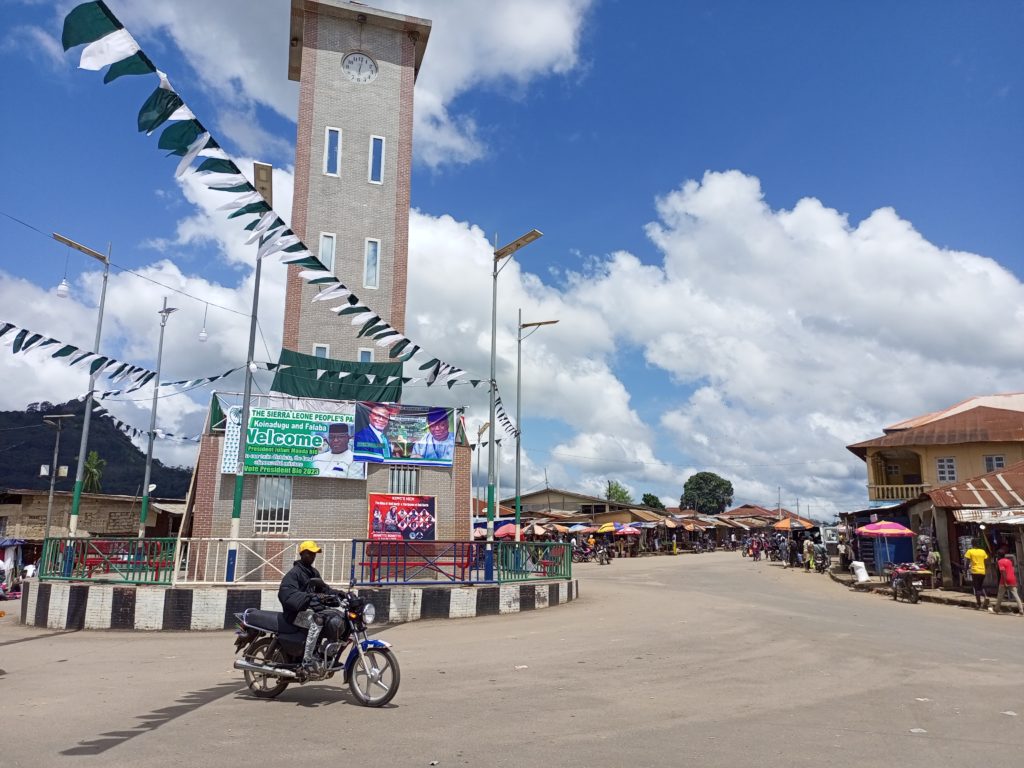
Journalist and activist Margret Misor Mansaray, a product of the Koinadugu Women’s Group, is one of the rising female voices of the district. She frequently hosts women on her radio programs – however, she said that women often shy away from speaking on the radio, due to fear of attack.
The same fear, she said, has also kept many women activists away from engaging on social media.
“Our traditional leaders are seeing women as people who should be at the back. When men are talking, women should not talk,” she said.
But there is hope. As Margret explained, part of the Koinadugu Women’s Group’s current focus is to engage local authorities about laws promoting discrimination against women. And, she added, they are making inroads in sensitizing the leaders – some of whom are now making commitments to act on these issues.
As the story of former Councilor Mansaray shows, progress is being made, even if it is happening at a slower pace.
This report was produced as part of the Internews’ Public Facing Women reporting fellowship for Sierra Leone based journalists.








